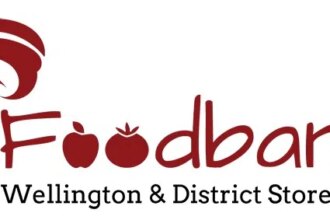In the heart of Guelph, a culinary revolution is quietly taking shape – one rescued carrot and salvaged grain at a time. Last weekend, over 120 community members gathered at The Junction for an innovative “Upcycled Dinner” that transformed what would typically be discarded food into a gourmet feast, challenging conventional notions about food waste while strengthening community bonds.
“We’re not just serving meals; we’re serving a message,” explained Gillian Maurice, program coordinator at Our Food Future, the organization behind the event. “When people experience firsthand how delicious food made from ‘waste’ can be, it changes their perspective on what’s truly valuable.”
The dinner, part of Guelph’s circular economy initiatives, featured a menu crafted entirely from ingredients that would otherwise have been discarded – misshapen vegetables rejected by retailers, grain byproducts from local breweries, and surplus foods from area farms and businesses. Chef Pam Fanjoy led a team of culinary students who masterfully transformed these overlooked ingredients into an impressive four-course meal.
“The carrot top pesto alone changed my entire understanding of food waste,” remarked attendee Sarah Collins, who admitted she typically throws such items away. “I never realized how much perfectly good food I’ve been discarding without a second thought.”
This isn’t merely an exercise in creative cooking. According to Canada’s National Zero Waste Council, Canadians waste approximately 2.2 million tonnes of edible food annually, contributing to greenhouse gas emissions equivalent to 2.1 million cars on the road. In Wellington County alone, food waste represents over 30% of residential garbage.
“We’re facing significant environmental and economic challenges related to how we handle our food systems,” noted Barbara Swartzentruber, executive director of Smart Cities at the City of Guelph. “Events like this demonstrate practical solutions that benefit both our community and our planet.”
Beyond the environmental impact, the dinner highlighted the social dimension of food recovery. Several local businesses contributed to the event, including Dixon’s Distilled Spirits, which provided cocktails made from fruit scraps, and Sleeman Breweries, which donated spent grains for bread-making.
“This is about building a resilient local food economy where nothing is wasted and everyone benefits,” said Evan Ferrari, executive director of eMERGE Guelph, a community partner for the event. “When businesses reduce waste, they save money. When consumers understand food value better, they save money. It’s a win-win approach.”
The evening wasn’t limited to dining. Attendees participated in educational activities about circular living principles, including composting demonstrations, food preservation techniques, and creative approaches to using commonly discarded food parts. Local experts shared practical tips for reducing household food waste, from proper storage methods to meal planning strategies.
Organizers emphasized that this isn’t a one-time event but part of an ongoing effort to transform Guelph and Wellington County into Canada’s first circular food economy. The initiative, supported by a $10 million prize from Infrastructure Canada’s Smart Cities Challenge, aims to increase access to nutritious food while eliminating waste throughout the food system.
“The enthusiasm we’ve seen tonight demonstrates that our community is ready to embrace these changes,” said Maurice. “People are leaving not just with full stomachs but with new skills and perspectives they can immediately apply in their own homes.”
As our global food systems face increasing pressure from climate change, population growth, and resource constraints, could community-based initiatives like Guelph’s Upcycled Dinner provide a template for sustainable food practices that nourish both people and planet? The answer, at least in this Ontario community, seems to be taking shape one rescued ingredient at a time.













